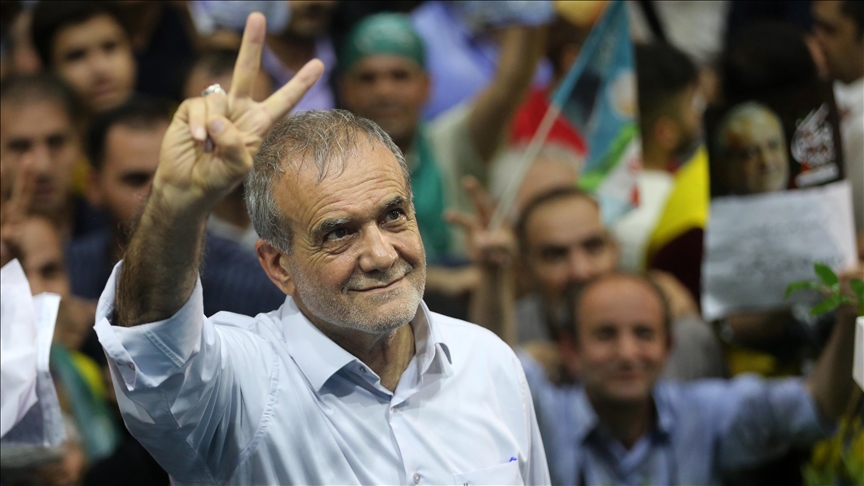TEHRAN, Iran
A seasoned Iranian lawmaker and former health minister, Masoud Pezeshkian stunningly raced past his opponents in the snap presidential election on Friday, receiving the most votes.
According to the final results announced by Iran’s Interior Ministry on Saturday morning, less than 12 hours after the voting lines closed, the reformist candidate received 10.4 million votes out of a total of 24.5 million votes counted.
Saeed Jalili, the former lead nuclear negotiator, came in second with 9.4 million votes and will face Pezeskian in the run-off election on July 5.
A relatively low-profile political figure, Pezeshkian served as the health minister in the government of Mohammad Khatami (2001-2005) and has represented the northwestern city of Tabriz in the Iranian parliament since 2008.
A cardiologist by training, Pezeshkian previously also headed the Tabriz University of Medical Sciences, one of the leading medical institutions in northern Iran.
His two previous unsuccessful bids for the presidency came in 2013 and 2021, respectively.
In 2013, he withdrew from the race in the later stages in favor of former President Hashemi Rafsanjani, and in 2021, his candidacy was rejected by the Guardian Council, the country’s top vetting body.
As the only reformist candidate in the race this time, backed by the country’s leading reformist coalition, Pezeshkian engaged in hectic campaigning in the past few weeks.
His campaign was bolstered by the presence of many former reformist politicians and ministers, including Javad Zarif, who served as Iran’s foreign minister for two terms under former President Hassan Rouhani.
Pre-election opinion polls showed significant support for Pezeshkian, especially after the five televised presidential debates in which he was vocal about both domestic and foreign policy issues.
Pezeshkian has given indications that he is more open to diplomatic engagement with the world, including the West, and intends to initiate reforms in both economic and cultural domains.
In presidential debates, he asserted that sanctions were acting as a roadblock in attracting trade partners and that achieving an 8% growth rate was impossible without opening borders.
He also vigorously defended the 2015 nuclear deal that was reached between Iran and the world powers during the administration of his fellow reformist Rouhani.
Pezeshkian has also been vocal about women-centric issues, including the mandatory Hijab (Islamic headscarf), expressing his opposition to the parliamentary bill on the implementation of the Islamic dress code bill that was introduced following the death of Mahsa Amini in late 2022.

